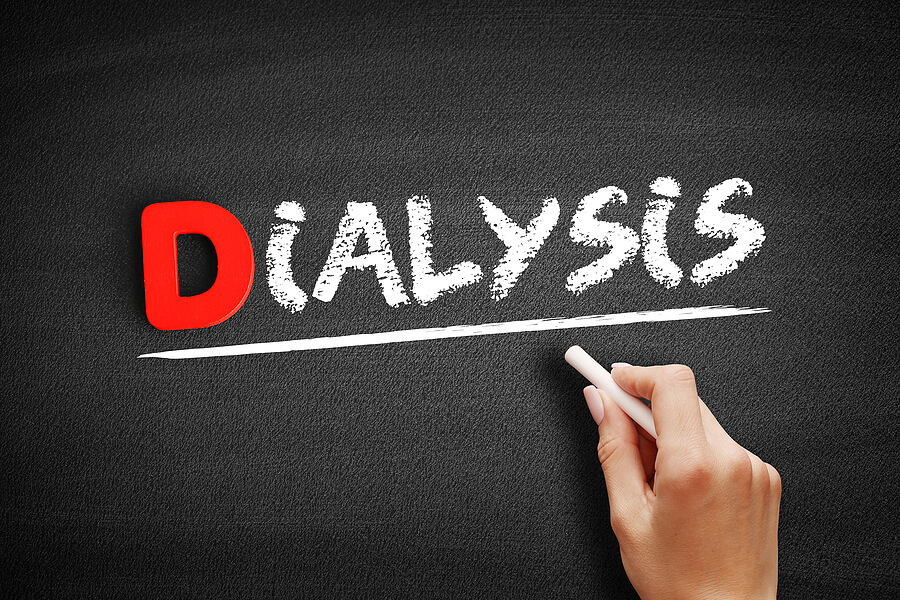Kidney Cancer in Elderly Adults
Category:

Kidney cancer begins when healthy cells in one or both kidneys grow out of control and form a tumor. With the National Kidney Foundation reporting about 62,000 cases each year in the U.S., this blog post focuses on what elderly patients need to know about this prevalent disease.
Risk Factors of Kidney Cancer
As individuals age, the risk of developing various types of cancers can increase, and kidney cancer is no exception. It is crucial to identify and understand the specific risk factors that can predispose elderly individuals to this disease. Recognizing these factors is the first step toward effective prevention and early detection. Some risk factors for kidney cancer include:
- Old age
- Family history of kidney cancer
- Smoking
- Hypertension
- Undergoing treatment for kidney failure
- Specific inherited syndromes (e.g., von Hippel-Lindau disease or Birt-Hogg-Dube syndrome)
Signs of Kidney Cancer in the Elderly
Early detection of kidney cancer can significantly improve the prognosis for seniors. However, identifying the symptoms can be challenging, as they may be subtle or mistaken for other age-related conditions. Awareness of the signs and symptoms of kidney cancer is vital for early diagnosis and treatment. Signs of kidney cancer in the elderly include:
- Anemia
- Blood in the urine, or hematuria
- Bone pain
- Fatigue
- High blood pressure
- High calcium
- Lumps or mass in the side or lower back
- Pain in the lower back between the pelvis and the ribs
- Loss of appetite
- Low-grade fever
- Unintentional weight loss
Download Our FREE Guide to Home Care
Treatment of Kidney Cancer in the Elderly
Treating kidney cancer in elderly patients requires a careful balance between effective cancer eradication and the minimization of treatment-related side effects. The choice of treatment is influenced by the patient’s overall health, the stage of cancer, and the presence of other medical conditions. Treatment for kidney cancer in the elderly includes:
-
Surgery. This involves removing the cancer while preserving normal kidney function. It can include a full nephrectomy (removing the entire affected kidney) or a partial nephrectomy (removing the tumor from the affected kidney).
-
Nonsurgical methods. For smaller kidney cancers, one may try nonsurgical treatments. This can be cryoablation, which involves inserting a special hollow needle into the kidney and administering cold gas to freeze cancer cells. You can also try radiofrequency ablation, which involves a special probe administering an electrical current into the cancer cells.
-
Advanced treatments. When kidney cancer spreads to other parts of the body or if it returns after one of the above treatments, you may have to rely on more advanced treatments.
-
Targeted therapy. This focuses on specific abnormalities within the cancer cells using specific medications determined by your doctor.
-
Immunotherapy. This helps activate your immune system to fight cancer cells.
-
Radiation therapy. Through this process, the patient is administered high-powered energy beams to control or reduce symptoms of kidney cancer that have spread to other parts of the body, such as the brain or bones.
-
- Clinical trials. These trials can involve testing new treatments or assessing the safety and effectiveness of potential treatments. Discuss the potential benefits and risks of clinical trials with your doctor upon discussing treatment.
How Long Can an Elderly Person Live with Kidney Cancer?
The five-year survival rate, which refers to the percentage of people who lived at least five more years after a cancer diagnosis, for kidney cancer in the U.S. is 77%. Kidney cancer elderly prognosis can also be determined by several factors, such as age, general health condition, as well as type. It’s best to consult your doctor upon diagnosis to determine the best prognosis. Now that we know more about kidney cancer prognosis in the elderly let’s look at risk factors.
Subscribe
Date: 2023-11-14
Category:


